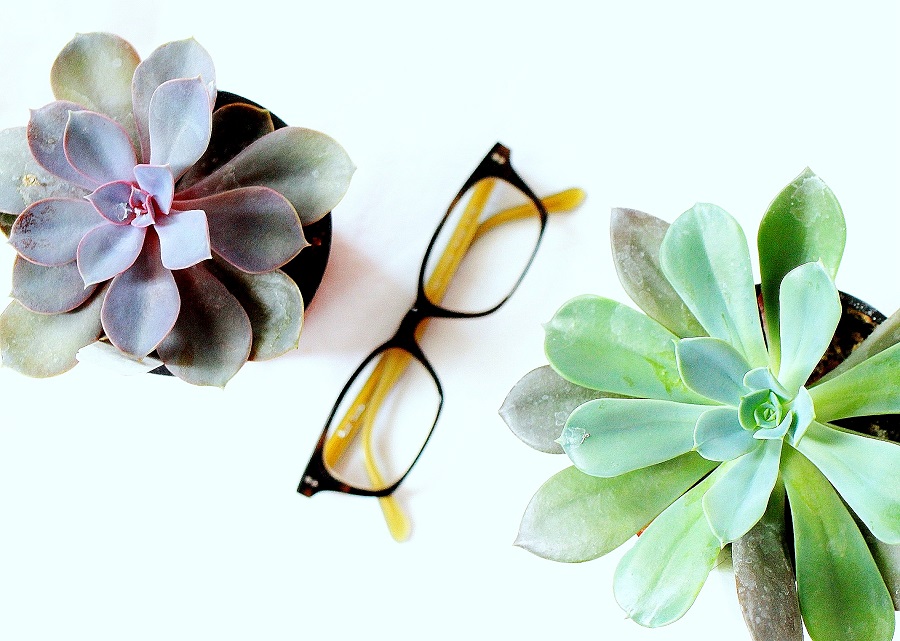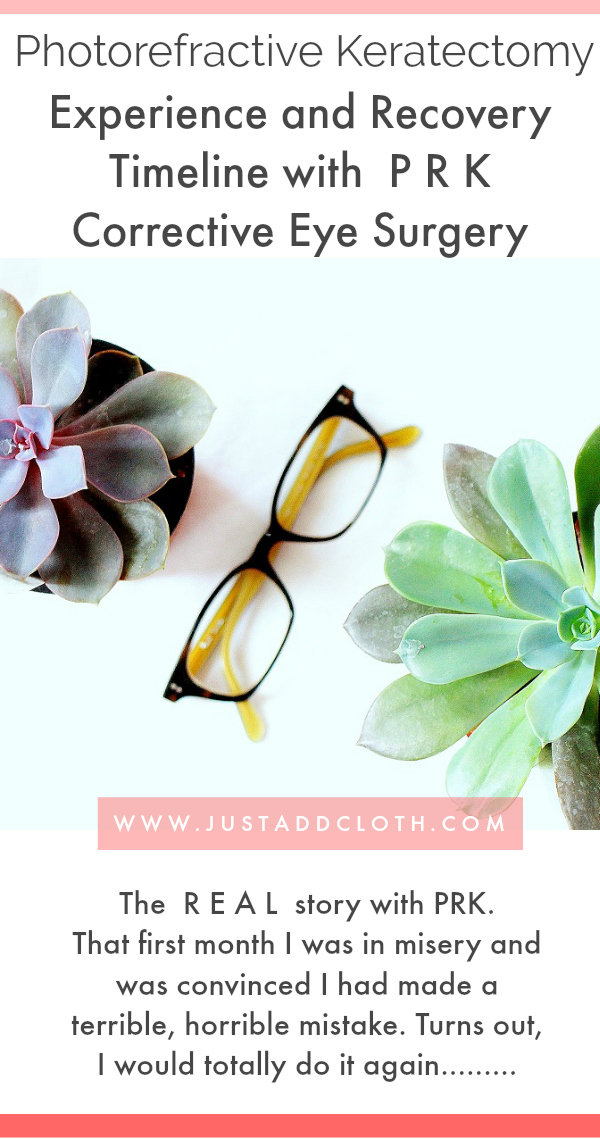
PRK
What?
PRK (photorefractive keratectomy) is a laser eye surgery to fix nearsightedness, farsightedness, and astigmatism. It was basically the only vision correction surgery around before they figured out how to cut open a flap and perform regular lasik.
I have worn glasses for many years. and even though specs have become rather trendy in recent years, I absolutely hated wearing them. I am a very active person. I like lots of running and lifting and skating and other things that have me bopping around getting sweaty. Glasses don’t work all that well with these activities and my vision was too bad to even go for a run without glasses, let alone play a team sport.
I have tried multiple kinds of contacts and they never fit quite right. Or maybe my eyes are just too sensitive. Contacts always meant immediate pain. And forget wearing any kind of eye makeup with the contacts. My choice was glasses fogging up on my face during workouts and team play, or pain, tears, and blurred vision. And no makeup. Yeah, super fun.
At the end of March 2017, I went to Whiting Clinic in Saint Louis Park, MN to be evaluated for LASIK. Except I actually wanted PRK. I play a sport that can mean getting hit in the face repeatedly, so I didn’t really want the flap. During the evaluation, they informed me I had literally every red flag there is against qualifying for LASIK. So, PRK was my only option anyway.
In regular LASIK, they cut a flap in the outer cornea (epithelium) and use a laser to reshape the cornea. In PRK, they chemically remove the entire epithelium, perform the laser surgery, and then you wait up to six months as the epithelium grows back.
I could not for the life of me, find any information on the net about the recovery time and when I would see. The info out there is pretty vague.
 April 14, 2017 Surgery Day!
April 14, 2017 Surgery Day!
The part where they remove the epithelium is very painful. Mostly because they missed my actual eye when applying the numbing drops. That was the worst part and it only took a minute. The actual laser was only mildly uncomfortable and the smell of burning….something filled my nose. Haha.
My eyes were in serious pain and I could not see anything at all. Just dark. Which is just as well since I couldn’t open them anyway.
And here is where it really deviates from LASIK. The next morning a LASIK patient wakes up and can see.
A PRK person wakes up and cannot open their eyes or see anything.
April 20 I go in for a post-op. I am legally blind, have no vision improvement, and much discomfort.
By April 24, I can open my eyes more than than two minutes at a time and I see four of everything. I still cannot see a computer screen or a phone screen. Forget watching TV or reading. Forget driving.
Vision begins improving day by day. Some days it is terrible. Some days I have Vaseline eyes. Later in the day is always worse.
By April 30 I decide I can drive so long as it is not far and I already know the way. I cannot see the steering wheel. I still cannot read street signs. I still see four of everything, but the four images are closer together. I most definitely should not have been driving, but I had to get my kid from school.
Around May 5th my eyes are feeling better, pain wise. They are still dry and scratchy feeling, but no pain. Also the four of everything have mostly converged into a single image.
Computer screens are still terribly blurry. I cannot edit photos or really use a camera yet. I can see things in peripheral, but not straight on at all. The point is, after THREE WEEKS I still cannot work.
May 7 – I break my leg and cannot drive anyway. Around June 15 or so I feel my vision is truly drive-worthy.
May 9, I have another follow up. Vision is not great, but much improved. If I look straight ahead everything is blurry, but if I tilt my head way down and scowl, it is nearly clear.
May 23
If I have gotten enough sleep and used moistening drops enough, my vision is decent. It isn’t nearly as crisp as it could be, but I can edit photos again. I can read a computer screen at this point and see most street signs. This week, my vision is functional. Basically, it is OK, but still bad enough to equal a decent strength prescription of corrective lenses.
The doctor, Who also had PRK, said the second month is when the magic happens. She was right. I noticed drastic improvement. I had surgery on my broken leg and stayed holed up in the dark for a couple weeks. When I emerged in mid-June, I could see the sky and trees clearly for the first time. I nearly cried.
July 19 is the three month follow up. It was been 96 days since surgery.
July 19 my vision is almost 20/20. My eyes feel very dry and a bit itchy, but I am over the hump! At this point I can say it was worth it. So, looking at the timeline, it took 3.5 months to recover. Which I am told was the normal timeline. BUT, no one seems to mention that when you are deciding to get it, so take heed.


Hi, I just read your helpful post, and i’m curious how you would judge your eyesight now. Did you see halo’s at night? If so, when did it stop? In general can you see well at night, as uf you were wearing glasses? Are you still sensitive to the light?
Hi Chris,
I cannot be certain, but at almost 6 years out from the PRK procedure, my vision is still pretty good. I have not needed any touchups. I have been told I will need glasses again due to age ( I am in my mid 40s) at some point. The dry eye is markedly better, but it was pretty pronounced for about four years. I had night halos for about 18 months. I still do not like driving at night since I find the lights irritating, but I think that was true with my glasses as well.
Overall, It was great to not need contacts or glasses for 6 years. However, when the time comes for either a second round of PRK or glasses, I will likely pick glasses. I still think the PRK was a great option, but I am not at a time in my life where I can be blind for 6 weeks. Also, at this age, some cheater reading glasses are kind of just par for the course. If I were in my 20s, I would definitely do it again.
-Steph